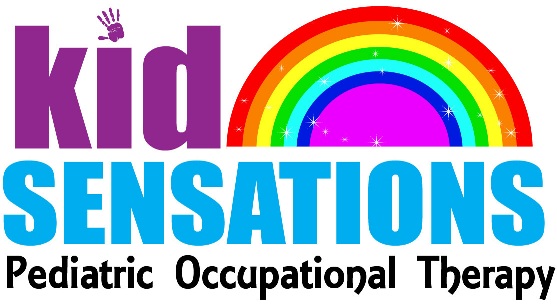Occupational Therapy Services
Our occupational therapy services include:
- Individual & Family-Focused Treatment – Treatment is geared toward building on specific motivations of each child, improving skills and abilities, and tailoring interventions to the needs of the child and family.
- Family & Caregiver Education Consultation – When applicable, the therapist will work with children’s primary caregivers to assist in assuring that new skills are generalized and utilized at home. Helping kids with routines, gradually increasing levels of independence, and problem-solving unique situations is part of successful treatment.
- School Observations/Teacher Consultation – Often children perform differently in different environments. When needed, the occupational therapist can coordinate with a child’s teacher for a classroom observation to determine possible strategies for improving school participation and performance.
- Early Intervention – Providing targeted therapy services to babies, toddlers, and young children helps take advantage of the unique ability of the young nervous system to develop new connections for development and function.
- Social Skills – Often issues with social participation are influenced by a child’s self-regulation and levels of arousal. Assisting children with achieving appropriate levels of arousal improves greatly their eye contact, conversation, and shared play experiences. Addressing this is a part of the therapeutic process and a vital part of successful peer participation.
- Fine Motor Skills – Improving hand and finger strength, tactile discrimination (the ability to use touch to get information from the environment and help perform tasks), and dexterity are addressed through activities and exercises, performed both during sessions and as part of a home program.
- Handwriting – Learning to print and later to write in cursive, requires a detailed set of skills that include appropriate stability, hand and finger strength, visual motor skills, and visual perceptual ability. Difficulty forming letters, becoming fatigued with lengthy writing tasks, trouble with spacing &/or placement on the writing line, are all addressed both by identifying and remediating underlying component parts of writing ability, and well as practice during sessions and at home.
- Treatment of Sensory Processing Disorders – The ability to smoothly and effortlessly receive and interpret information from our world, through our senses allows us to perform countless tasks each day successfully and efficiently. When this ability is not yet at optimal levels, these same tasks can become challenging and frustrating. Individually identifying and treating these disorders helps kids feel successful and confident about their skills in the present as well as in the future.
- Treatment of Sensory Defensiveness – Sensory defensiveness can take the form of hypersensitivity to touch, to sound, to taste, smell, or visual input. When a child with this encounters heightened levels of some types of stimulation, he or she experiences an uncomfortable and sometimes scary array of sensations. These children may be more anxious than other children in common situation, and may avoid things they might otherwise think are fun. Successful treatment of these issues helps a child open up to his or her world to experience it positively without as much fear or withdrawal.
- Visual Perceptual/Visual Motor Integration – Taking in information through the visual system about spatial organization of people and objects in both 2 and 3 dimensions, greatly impacts a child’s ability to interact successfully. Work on improving these skills is beneficial on many levels for kids who need it
- Activities of Daily Living (ADL) – Emerging independence in self-care tasks involves many facets: physical ability, sensory processing, perceptual ability, ability to sequence and organize tasks, while maintaining appropriate levels of attention and arousal. Each child’s strengths and needs are determined and addressed with involvement from primary caregivers to assure independence with eating, dressing, and other daily activities
- Social-Emotional-Behavioral Support – This a primary building block of all performance and function. Each child must feel secure, valued, and respected in order to develop a healthy sense of self. Attention is given to each child as needed to facilitate achieving comfortable levels of arousal, modifying treatment activities &/or environmental demands, working with caregivers to achieve awareness of following routines, and accepting limits in order to help develop self-confidence and a healthy self-concept.
For more information about our services, please read our frequently asked questions (FAQs).
Next Steps…
I think my child could benefit from occupational therapy. How do I get started?
If there are concerns regarding a child’s skills or development, contact KidSensations to speak with the therapist to discuss specifics related to this and to access the first step – evaluation.
Upon completion of the initial evaluation, a written report interpreting findings and any recommendations is provided for the family, along with a separate conference time for explanation and discussion. Treatment is scheduled as appropriate.
KidSensations Pediatric Occupational Therapy is the place to help each child get set for success.
If you need more information or are interested in an evaluation, please contact us.
